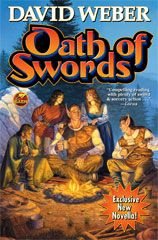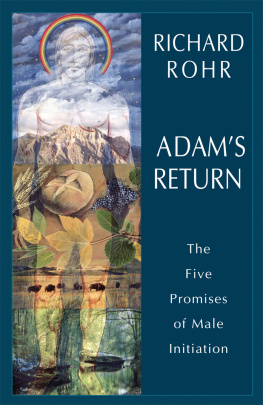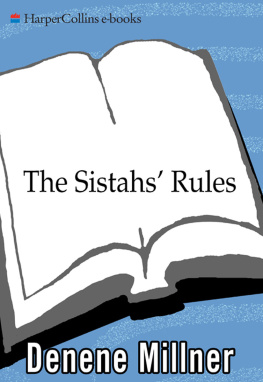S. M. C. - Brother Petrocs Return
Here you can read online S. M. C. - Brother Petrocs Return full text of the book (entire story) in english for free. Download pdf and epub, get meaning, cover and reviews about this ebook. genre: Detective and thriller. Description of the work, (preface) as well as reviews are available. Best literature library LitArk.com created for fans of good reading and offers a wide selection of genres:
Romance novel
Science fiction
Adventure
Detective
Science
History
Home and family
Prose
Art
Politics
Computer
Non-fiction
Religion
Business
Children
Humor
Choose a favorite category and find really read worthwhile books. Enjoy immersion in the world of imagination, feel the emotions of the characters or learn something new for yourself, make an fascinating discovery.
- Book:Brother Petrocs Return
- Author:
- Genre:
- Rating:4 / 5
- Favourites:Add to favourites
- Your mark:
- 80
- 1
- 2
- 3
- 4
- 5
Brother Petrocs Return: summary, description and annotation
We offer to read an annotation, description, summary or preface (depends on what the author of the book "Brother Petrocs Return" wrote himself). If you haven't found the necessary information about the book — write in the comments, we will try to find it.
Brother Petrocs Return — read online for free the complete book (whole text) full work
Below is the text of the book, divided by pages. System saving the place of the last page read, allows you to conveniently read the book "Brother Petrocs Return" online for free, without having to search again every time where you left off. Put a bookmark, and you can go to the page where you finished reading at any time.
Font size:
Interval:
Bookmark:
Microsoft@page { margin-bottom: 5.000000pt; margin-top: 5.000000pt; }
Brother Petroc's
Return
By
S. M. C.
Microsoft@page { margin-bottom: 5.000000pt; margin-top: 5.000000pt; }
Brother Petroc lay dying; that is, if he were not already dead.
Outside the Monastery, scarcely a hundred yards from the edge of the cliff, the surf of the ever-rest less Atlantic beat on the wild north Cornish shore, and a fine mist of spray blew in, as it always did, at the narrow unglazed window of the cell. But the crash of breakers and the screaming of gulls had no power to disturb Brother Petroc, who lay with closed eyes on his pallet, serene and motionless; so still that even the gradually weakening breathing seemed to have stopped at last.
Presently there was a sound of steps along the corridor outside; the doors opened and my Lord Abbot, followed by the Infirmarian, entered the cell. He was a tall, dignified figure of a man, scarcely past his prime; but his forehead was knit with many wrinkles, and the hair that had escaped the tonsure was snow-white; for my Lord Abbot lived in difficult times and had seen more than a little trouble. He crossed the room and stood by the bed-side, looking down on the still form, with pursed lips and narrow, scrutinising eyes. After a moment's survey he bent down and placed his hand first on the pulse, then on the heart. He made a little sign to the Brother and sank on his knees:
"De profundis clamavi ad te, Domine," said my Lord Abbot, and there was an unmistakable note of relief in his voice. The Brother Infirmarian kneeling beside him took up the alternate verses.
The Psalm ended, the Abbot rose, turned quickly from the dead man and spoke in sharp decisive tones:
"Tell the Prior to ring the bell and summon the Brethren," he said. "Let the Sacristan have the stone ready to close the vault, and mortar to fasten it. The Lay Brothers must provision the boats and get them ready to launch; tell the Procurator to see to that. Find two young monks and bring them here. Between you, you must carry Brother Petroc, as he is, down to the Choir. We must bury him immediately, and then row out as quickly as possi ble to Long Island. I have decided that our only chance of safety will be to live in the caves there until this storm blows over. Then, by God's Grace, in a few weeks we shall return and finish Brother Petroc's funeral rites in a more seemly fashion. Also" he added as the Infirmarian turned to go"find the Cantor and tell him to prepare a paper giving the deceased Brother's name and date of Profession, stating also that he died on the eve of his ordina tion day. I must see to the hiding of what few val uables we have."
The Abbot turned and hurried out of the cell, followed by the Infirmarian. He was not really cold or heartless; but he had endured trouble enough to try even the most patient man, and Brother Petroc's sudden illness and death had happened most inopportunely. For this was August 14th in the year of grace 1549.
Two days before this, my Lord Abbot was sitting in the great chair in his room in the North Cloister. The door was open and from where he sat he could see the Brethren at work in their carrals. A circular i lluminated calendar with an elaborate plan of the heavenly houses gave the date August 12th, and t he year of our Lord 1549. On the broad window ledge, hastily staying themselves with large pasties and small beer, sat three scarecrows of men, and as they munched the Abbot plied them with questions.
"We were doing right well, my Lord," they told him between bites; "we had taken Launceston and had well repaid the traitor Greville for the death of Kylter and the rest last year. Then at S. Mary's Clyst we were worsted by the heretic army. The S . Brioc men were on the left wing and somehow we were cut off from the rest. We were sore beset by a band thrice our size and after fierce fighting the few of us who were left fled for home. The heretics are close behind us, so we turned off here on our way to the village to tell you and the Breth ren to hasten to the caves in Long Island and wait there in hiding until the storm blows over."
"We are much indebted to you and the rest, Tregantle, for remembering us in your own distress. I will take measures as soon as may be for the safe ty of my monks."
The Abbot rose and, signing to the Guest Master stan ding outside to take charge of the men, hurried to the Procurator's room to begin preparations. After all he was not quite unprepared. For life had been difficult and living precarious for several years now.
That the Benedictine Abbey of S. Brioc was still in t he possession of its lawful owners was because it was a very small poor place, perched on a high bleak headland of the north Cornish coast. It was an unpretentious building of rough granite blocks, unenclosed save for the quadrangle shut in by its own cloisters. It was right off the track of any of the great roads, with no town nearer than Polgarth five miles away.
The Monastery was built on the height of a great cliff, but to east and west the land dipped suddenly into two narrow and warmly sheltered valleys, watered by tiny swift streams and leading down to a patch of shingle. Such valleys as these are found all along that coast. The valley to the west belonged to the monks, who kept a few cows and sheep and contrived to till sufficient land to yield a scant liveli hood of corn and vegetables. That to the east held a large village peopled by wild, silent folk, who quarried the slate which was plentiful in that dis trict, and fished, turning wreckers in a body when occasion served. They obeyed the monks only when it suited them, but loved them with an almost dog-like devotion.
His Majesty's Commissioners had never even heard of the Abbey, for the Bishop of Exeter had diplomatically forgotten its existence when he filled in the list of Religious Houses for his diocese; it was neither rich nor large enough to tempt an informer; beside which, the people round about were all Catholics, and a Cornishman never betrays his fellows to up-country foreigners. So the monks lived in peace and served the village as though England still owned allegiance to Rome. There was only one significant change made, when a special Rescript came from Rome consecrating the Abbot a bishop, with power to ordain his own monks.
But after a time there filtered through to this wild solitary spotas all such news does filter througha tale of Humphrey Arundell gathering a band of Cornish men to march into Devon and put to flight those King's men who were striving to in troduce by force an English Version of prayers, in stead of their own Latin Mass Book; and that too when half the men of Cornwall were far more ignorant of the English than the Latin tongue. So the men of S. Brioc's had unearthed all that might serve as weapons of offence and defence, and has tened to join the band, ten thousand strong, who were marching east.
At first their prospects had been good and their hopes high; but at S. Mary's Clyst they had met with their first reverse, where the S. Brioc's con tingent had been decimated and had fallen back in the direction of their own district, followed by a band detached for the purpose. This defeat had been followed by two more, which had destroyed a great part of the Catholic army, the remnant fall ing back in disorder on Launceston, hotly pursued by the King's men who were determined once and for all to break the spirit of the Cornish and stamp out their religion.
The Procurator's room was on the south side of the House, and the Abbot was passing the Church door when he heard a thud and suppressed cry from the Lady Chapel beyond. He opened the door and looked in. There, stretched apparently lifeless on the floor, lay the deacon Petroc. Poor fellow! An other postponement to his ordination would be one result of the afternoon's news, and he had already waited some years beyond time.
Next pageFont size:
Interval:
Bookmark:
Similar books «Brother Petrocs Return»
Look at similar books to Brother Petrocs Return. We have selected literature similar in name and meaning in the hope of providing readers with more options to find new, interesting, not yet read works.
Discussion, reviews of the book Brother Petrocs Return and just readers' own opinions. Leave your comments, write what you think about the work, its meaning or the main characters. Specify what exactly you liked and what you didn't like, and why you think so.











